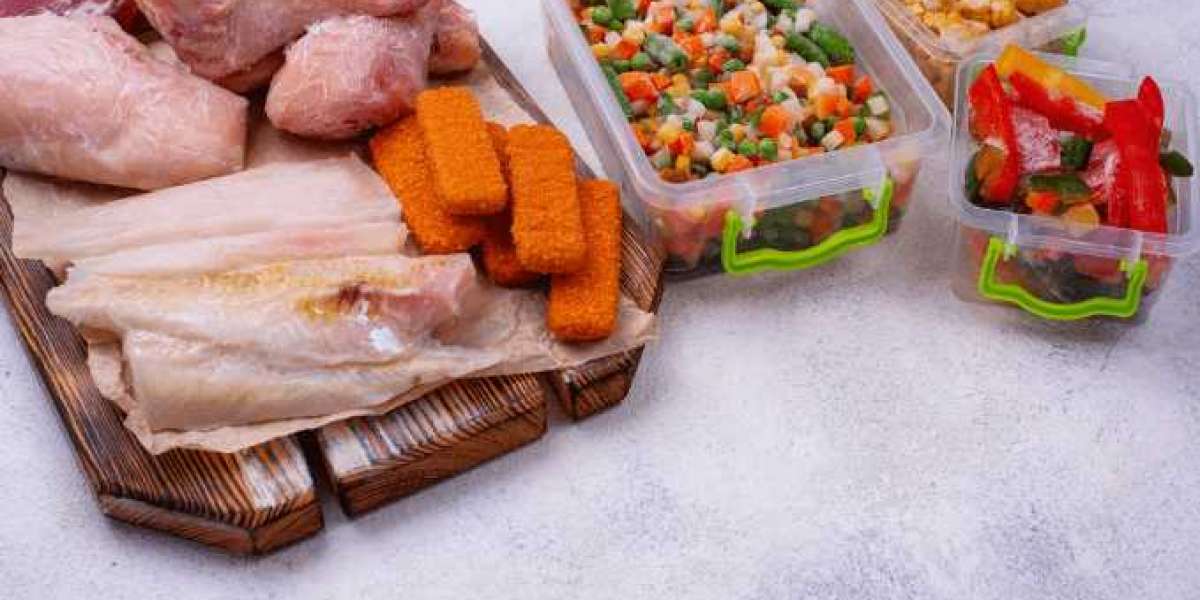In recent years, the demand for organic food has surged as consumers become increasingly conscious of their health and the environment. Alongside this trend, frozen organic products are gaining immense popularity, offering a convenient yet nutritious option for those seeking healthier meals. This shift highlights how frozen organic foods are reshaping our kitchens and eating habits.
Why Choose Frozen Organic?
Nutritional Value: One of the biggest misconceptions about frozen food is that it loses its nutritional value over time. However, with modern freezing techniques, organic fruits, vegetables, and even proteins retain most of their vitamins and minerals. In fact, studies have shown that frozen produce can be just as nutritious as fresh produce, if not more so, since they are typically picked and frozen at peak ripeness.
Longer Shelf Life: One of the major benefits of frozen organic products is their extended shelf life. Fresh organic produce, while nutritious, often spoils quickly, which can be both wasteful and costly. By choosing frozen options, consumers can keep their organic produce for months without worrying about spoilage.
Convenience: Frozen organic products offer the convenience of having wholesome food available at any time. With our increasingly busy lives, having pre-washed, chopped, and ready-to-cook organic options in the freezer can be a lifesaver. This convenience doesn’t come at the cost of health, allowing people to maintain a balanced diet even when they’re pressed for time.
Eco-Friendly and Sustainable
Less Food Waste: Food waste is a major issue globally, and frozen foods can help reduce this problem. Since frozen organic products last longer, there’s less chance of them spoiling before they can be consumed. This reduces household food waste and saves money for the consumer.
Sustainability: Organic farming practices are typically more sustainable than conventional farming, as they avoid harmful pesticides and promote biodiversity. By choosing frozen organic products, consumers are not only supporting sustainable farming but also reducing the carbon footprint associated with the transportation and storage of fresh goods.
Varieties of Frozen Organic Products
From vegetables and fruits to full meals, the variety of frozen organic products is expanding rapidly:
Fruits and Vegetables: Frozen organic berries, spinach, broccoli, and carrots are staples in many households. These can be easily added to smoothies, soups, or stir-fries.
Proteins: Organic frozen meats, poultry, and seafood are also becoming more accessible. They are frozen at their freshest point to lock in flavor and nutrients, providing a healthy option for quick meals.
Ready-to-Eat Meals: With the rise of organic ready-to-eat frozen meals, consumers can enjoy everything from organic pizza to vegan bowls. These products cater to different dietary preferences while maintaining high nutritional standards.
Making Frozen Organic Products a Part of Your Routine
Incorporating frozen organic products into your routine is simple and rewarding. Whether it’s using frozen organic vegetables in a stir-fry or blending frozen berries into your morning smoothie, these products make it easy to enjoy healthy, flavorful meals without the hassle of preparation.
The Future of Frozen Organic Foods
As awareness of health and sustainability continues to grow, the frozen organic sector is expected to expand even further. Innovations in freezing technology and packaging are improving the quality of these products, while more brands are investing in sustainable and organic offerings. This trend shows that frozen organic food is not just a passing fad, but a cornerstone of modern, health-conscious living.
Conclusion
Frozen organic products provide an excellent balance between health, convenience, and sustainability. They allow consumers to enjoy nutrient-rich, organic food without the time constraints or waste associated with fresh products. With more options available than ever, frozen organic products are becoming a staple in homes worldwide, proving that healthy eating doesn’t have to be difficult or expensive.







